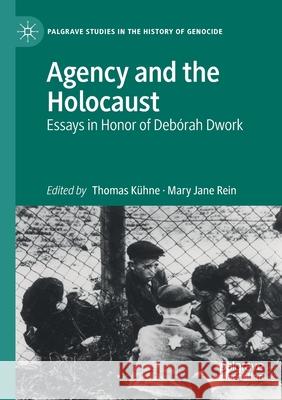Agency and the Holocaust: Essays in Honor of Debórah Dwork » książka
topmenu
Agency and the Holocaust: Essays in Honor of Debórah Dwork
ISBN-13: 9783030390006 / Angielski / Miękka / 2021 / 246 str.
Agency and the Holocaust: Essays in Honor of Debórah Dwork
ISBN-13: 9783030390006 / Angielski / Miękka / 2021 / 246 str.
cena 602,40
(netto: 573,71 VAT: 5%)
Najniższa cena z 30 dni: 539,74
(netto: 573,71 VAT: 5%)
Najniższa cena z 30 dni: 539,74
Termin realizacji zamówienia:
ok. 22 dni roboczych
Dostawa w 2026 r.
ok. 22 dni roboczych
Dostawa w 2026 r.
Darmowa dostawa!
Kategorie BISAC:
Wydawca:
Palgrave MacMillan
Seria wydawnicza:
Język:
Angielski
ISBN-13:
9783030390006
Rok wydania:
2021
Wydanie:
2020
Numer serii:
000793501
Ilość stron:
246
Waga:
0.31 kg
Wymiary:
21.01 x 14.81 x 1.37
Oprawa:
Miękka
Wolumenów:
01
Dodatkowe informacje:
Wydanie ilustrowane











